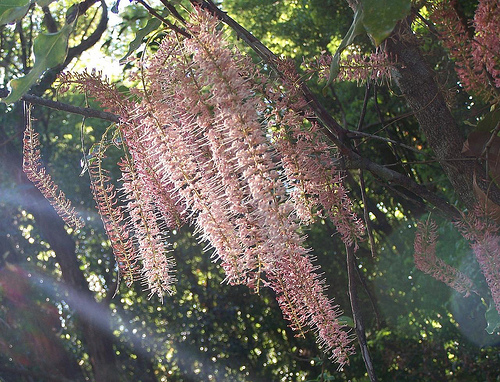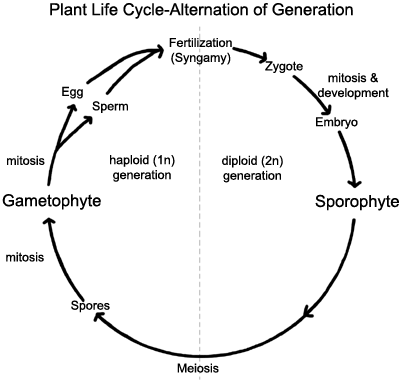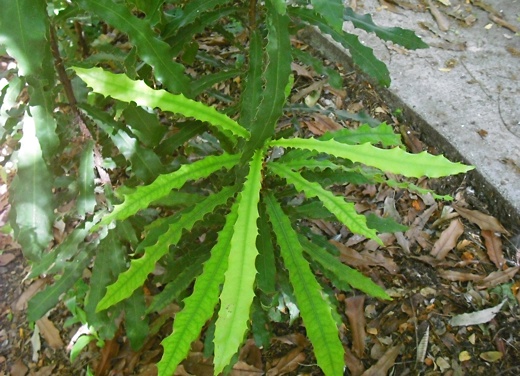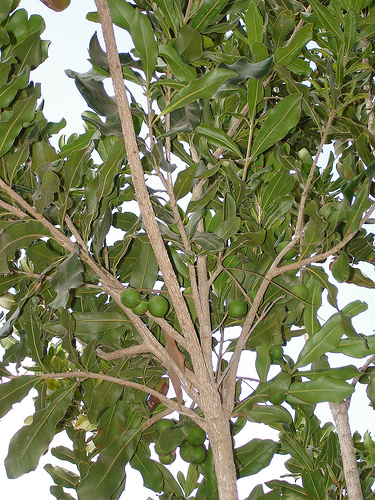Reproduction: How it increases population size
The Birds and the Bees:
The Macadamia tetraphylla
is a seeded vascular plant. This means that it reproduces
via seeds. In addition, it is part of the group Magnoliopsida, which means that it also flowers and has covered
seeds.
Similar to most (if not all) plants, the Macadamia
tetraphylla has an alternation of generations life cycle.
What does this mean? At multiple points in its life cycle,
this plant will have two different multicellular structures.
The sporophyte is the diploid multicellular structure, and the
gametophyte is the haploid multicellular structure. They
each have their own respective duties within the plant's life
cycle.
The general life of a plant is as follows: we start as a
haploid spore or egg. The spores are transported via wind,
water, or animals- in the case of Macadamia tetraphylla,
wind, water, and small rodents like squirrels- to the stigma of the flower.
From there, the spore (which is the sperm cell) makes its way
down the style into the ovary of the flower. Then, it
fertilizes the egg inside the ovary and produces a diploid
zygote. The zygote grows into a seed which is then dropped
and waits for the right growing conditions.
These seeds can last up to 4-6 months and still be
able to produce a plant. When good conditions
arise, the plant begins to grow and emerge from the seed.
The plant grows into a sapling (shown right) and then into an adult tree which
is also known as the sporophyte. In order to produce
spores or eggs, specific cells in the tree undergo meiosis.
Those spores are then transported while the eggs are kept in the
ovary. That completes the cycle and then the whole process
begins all over again.
good conditions
arise, the plant begins to grow and emerge from the seed.
The plant grows into a sapling (shown right) and then into an adult tree which
is also known as the sporophyte. In order to produce
spores or eggs, specific cells in the tree undergo meiosis.
Those spores are then transported while the eggs are kept in the
ovary. That completes the cycle and then the whole process
begins all over again.

The Macadamia tetraphylla flowers in the months of August to
September. In addition, it produces its fruit
from March to April. This species has a
juvenile period of about six years. This means
that the plant does not fruit for the first 6 years
of its life (shown left is first fruiting of a
plant). In addition, they reach maturity
around ten years of age. Macadamia tetraphylla
is used as a commercial crop for about 40-50 years
of its fruiting life time. They can, however,
fruit for up to 100 years!
Continue on to Facts!